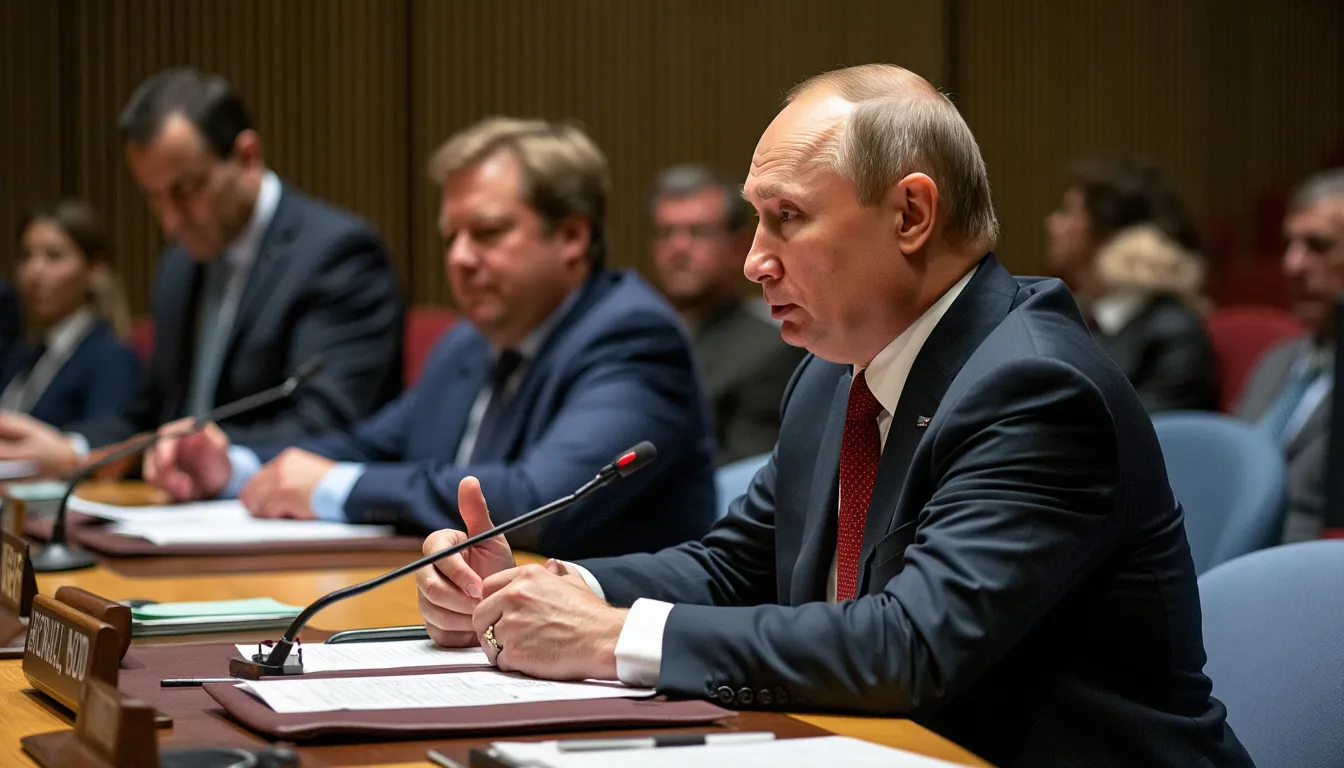
Russia Notifies UN Security Council of Guaranteed ‘Direct Conflict’ with NATO if US Endorses Long-Range Attacks
In a significant escalation of rhetoric, Russia has warned the United Nations Security Council that a direct conflict with NATO is assured should the United States approve the deployment of long-range strike capabilities near Russian borders. This alarming declaration underscores the increasing tension between Russia and NATO amid ongoing military developments in Europe.
Threat of Direct War
President Vladimir Putin articulated Russia’s position during a recent address, emphasizing that U.S. military support for long-range attacks represents a critical threat that could trigger a direct confrontation. The Kremlin’s preparations for a wide-ranging response signal the severity of these warning signs, highlighting how close NATO’s actions are perceived to be to Russian sovereignty.
Security Concerns
The principal focus of Russia’s anxiety centers on the potential establishment of U.S. and NATO military installations, including ballistic missile systems, in close proximity to its borders. Analysts suggest that any enhancement of NATO’s military infrastructure elicits strong responses from Moscow, as it is viewed as a direct infringement on Russian security and a destabilizing force in the region.
NATO Expansion
Russia has long maintained a staunch opposition to NATO’s expansion into Eastern Europe. The Kremlin views this enlargement as a fundamental challenge to its national security. In this light, Russia has proposed that NATO forgo further expansion and revert its military capabilities in Europe to pre-1997 levels, a request that has largely been dismissed by Western powers.
Diplomatic Efforts
In the face of mounting tensions, Russia has sought to engage in diplomatic negotiations aimed at establishing security guarantees and advocating for a European Security Treaty. However, these overtures have been routinely rejected or disregarded by NATO and the U.S., leading to a sense of frustration and increased hostilities.
Escalation in Ukraine
The conflict in Ukraine, especially the ongoing strife in the Donbass region, further complicates Russia-NATO relations. Moscow contends that Ukraine has failed to fulfill the Minsk agreements and has escalated hostilities, prompting Russia to consider military action as a necessary response to perceived Ukrainian aggression.
Sanctions and Sovereignty
Additionally, Russia accuses Western nations, particularly the U.S., of wielding sanctions as a weapon to undermine its sovereignty and national interests. Despite the conflict in Ukraine, Moscow believes that such punitive measures will not deter its actions or resolve the geopolitical challenges it faces.
Conclusion
As tensions escalate, it is clear that the potential for conflict looms large over Europe. The situation demands careful monitoring as both NATO and Russia navigate this fraught landscape, balancing military readiness with the desire for diplomatic resolution. The current climate signifies a delicate moment in global security, with widespread implications should negotiations falter.
